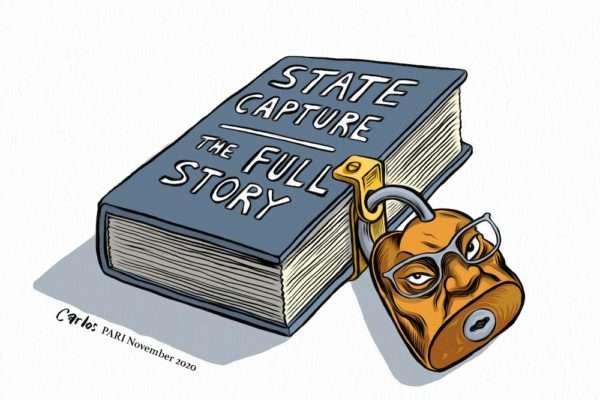State-Owned Enterprises (SOEs) are not designed to be loss-making ventures. Instead, they are being sabotaged by political capture, argued Prof. Henry Kwesi Prempeh, Executive Director of the Ghana Center for Democratic Development (CDD-Ghana).
In a searing critique of public sector mismanagement, he insisted the rot within SOEs is not incidental, but engineered—enabled by a corrupt system of government-appointed managers, complicit boards, and lax oversight.
Speaking on the perennial underperformance of these state-run entities, Prof. Prempeh challenged the prevailing myth that public enterprises are inherently inefficient.
“SOEs are not inherently unprofitable; they are made unprofitable in GH by the actions of their government-appointed managers and staff.”
Prof. Henry Kwesi Prempeh
At the heart of this political capture, Prof. Prempeh noted, is a network of self-dealing and opaque financial practices.
Boards, handpicked by ruling governments, often inflate the operational costs of these enterprises, indulging in over-invoicing, shady procurement deals, and excessive benefits packages.
He noted that this includes perks like lavish travel allowances and bogus corporate social responsibility (CSR) projects that serve no real public interest.
This culture of entitlement has made public companies fiefdoms of privilege for a small elite, while losses are passed on to taxpayers.

The abuse does not stop at procurement. Prof. Prempeh further revealed how SOEs lose revenue through the diversion of their products.
According to him, “Routine taking and diversion of the business’ products without payment, and a host of other shady conflict-of-interest transactions” are standard operating procedures at many of these state bodies, he said.
Changing the SOEs’ Narrative
According to Prof. Henry Kwesi Prempeh, the first step in reversing this decay is to overhaul how boards and managers are selected and held accountable.
“If we want SOEs to show consistent profitability, which is possible, we must change the way we recruit, appoint and reward their managers, starting with the board.”
Prof. Henry Kwesi Prempeh
He recommended strict controls on SOE income and expenses—both before funds are spent (ex ante) and after the fact (ex post)—as a necessary reform to prevent ongoing abuse.

However, Prof. Prempeh noted that the deeper issue is Ghana’s flawed philosophy about how SOEs should operate.
He noted that too often, state institutions are treated as independent commercial entities simply because they are incorporated under the Companies Act.
According to him, this mistaken belief has fueled the hands-off approach by successive governments.
The implication is stark: by turning a blind eye to internal mismanagement in the name of corporate autonomy, the government is effectively allowing SOE bosses to run these institutions like personal businesses, shielded from public scrutiny and accountability.
Prof. Prempeh’s critique hits at a core dysfunction of Ghana’s political economy—one in which public goods are routinely converted into private gain. In his words, SOE executives have been allowed to “privatize the benefits and socialize the costs” of their operations.
The result? Chronic inefficiency, mounting debts, and a public sector that drains rather than supports national development.

While the legal ownership of these enterprises remains with the state, their true beneficiaries are no longer the Ghanaian people. “The real beneficial owners have become the management and staff of these entities and their political principals.”
The agency tasked with fixing this—State Interests and Governance Authority (SIGA)—faces an uphill battle. Burdened with a legacy of political interference and systemic rot, SIGA must now find the political will and institutional muscle to enforce real change.
Yet, many remain skeptical. Reforming SOEs requires more than audits and board reshuffles. It demands a shift in political culture—a commitment to public service over party loyalty, and integrity over impunity.
Without that, Ghana’s state enterprises will remain what critics have long called them: cash cows for the politically privileged.
In the end, the question is not whether SOEs can become profitable, as Prof. Prempeh makes clear, “consistent profitability… is possible.” The real question is whether Ghana is prepared to cut off the political pipeline that bleeds them dry.
Until then, political capture will continue to haunt Ghana’s public institutions, with taxpayers left footing the bill.
READ ALSO: M23 Insurgents Impose Heavy Taxes In Congo







